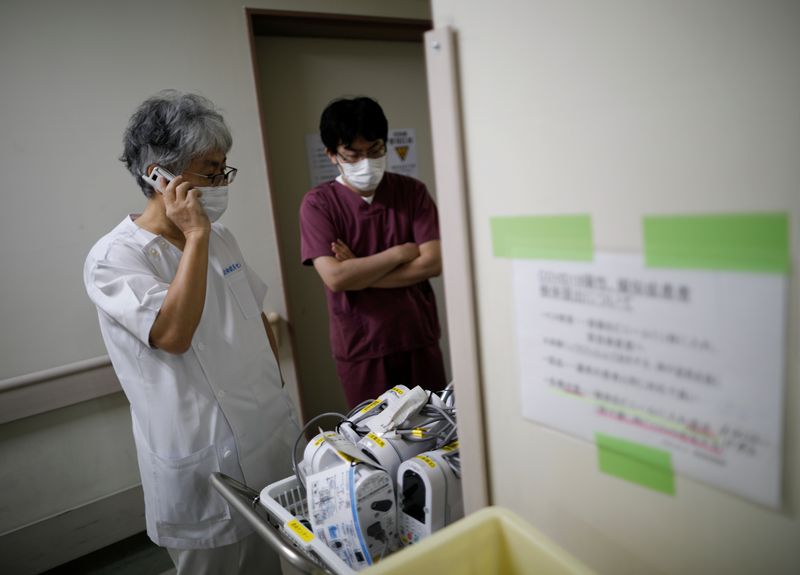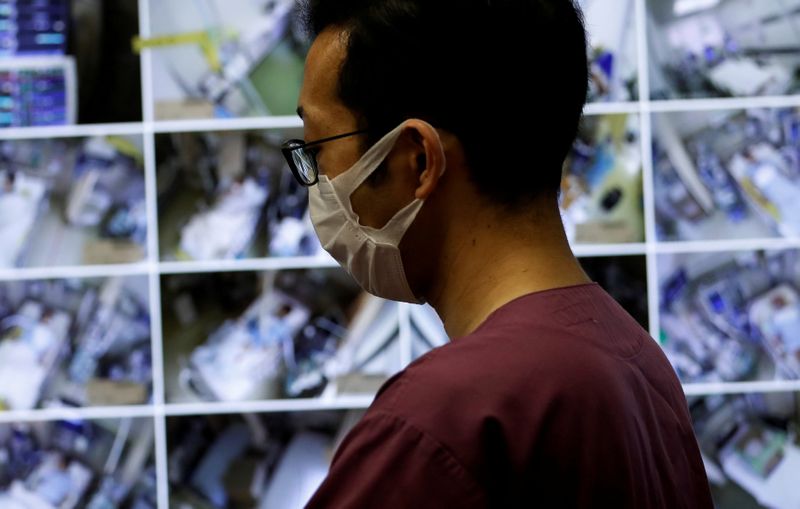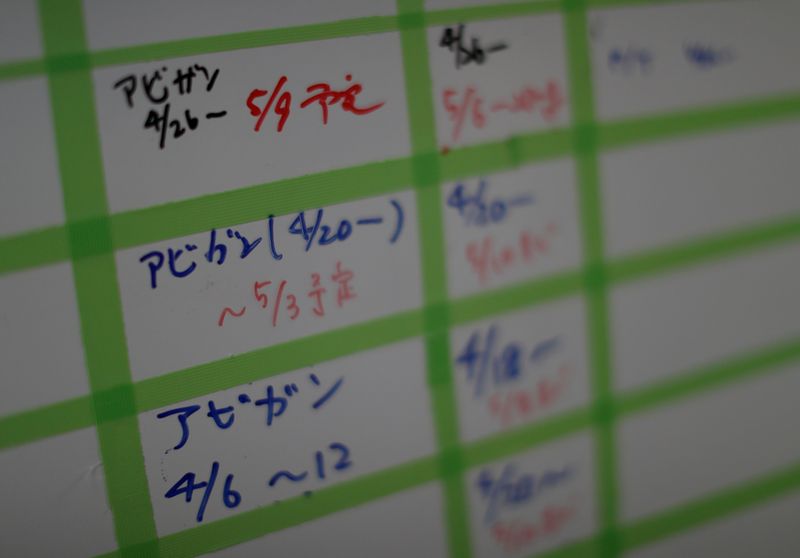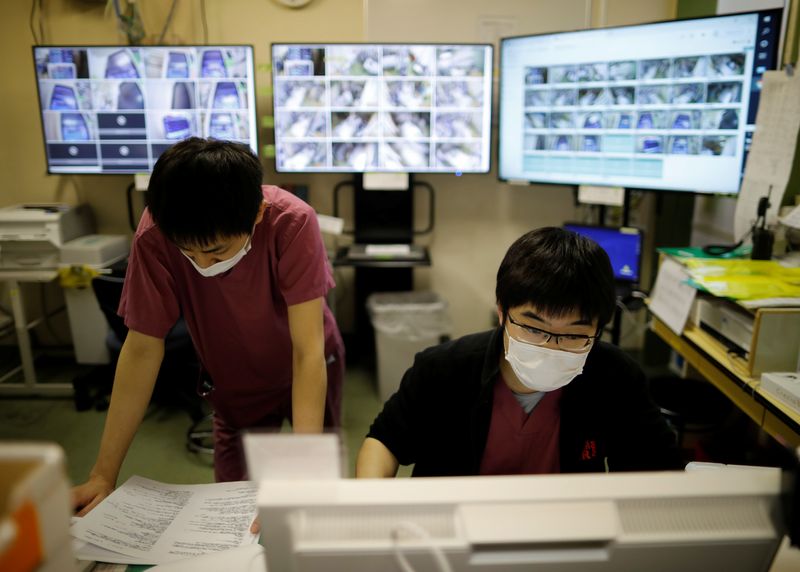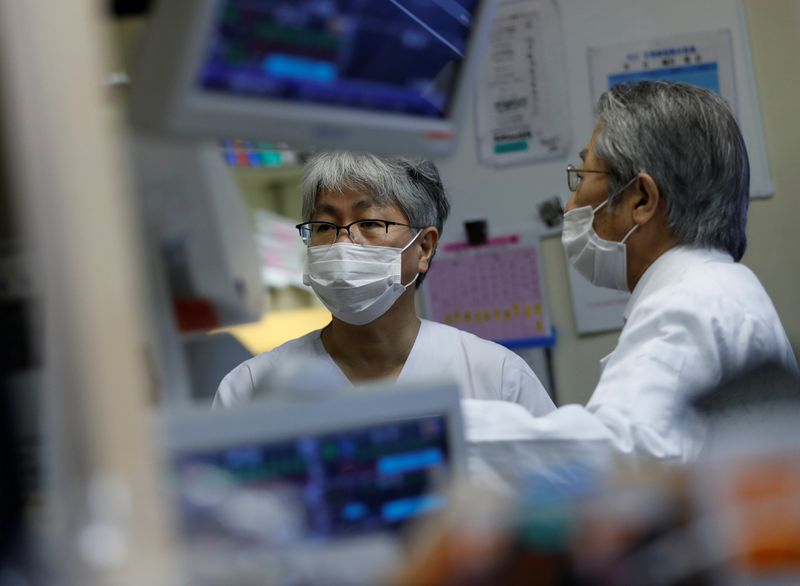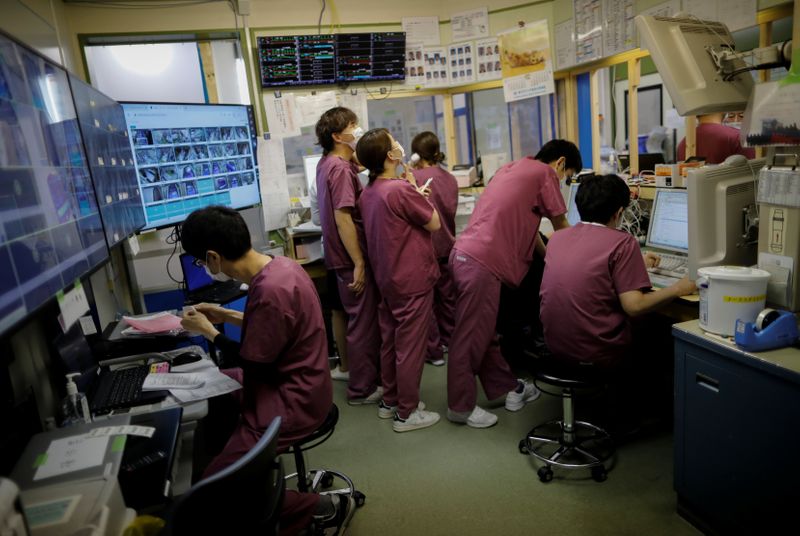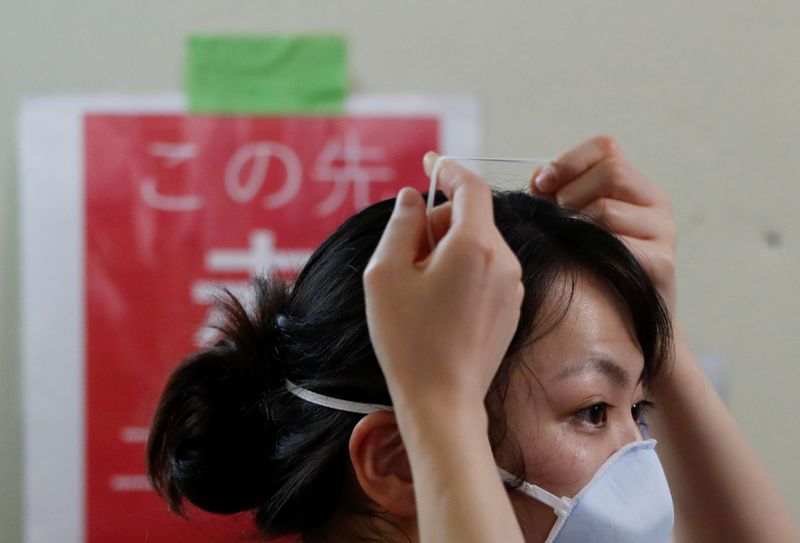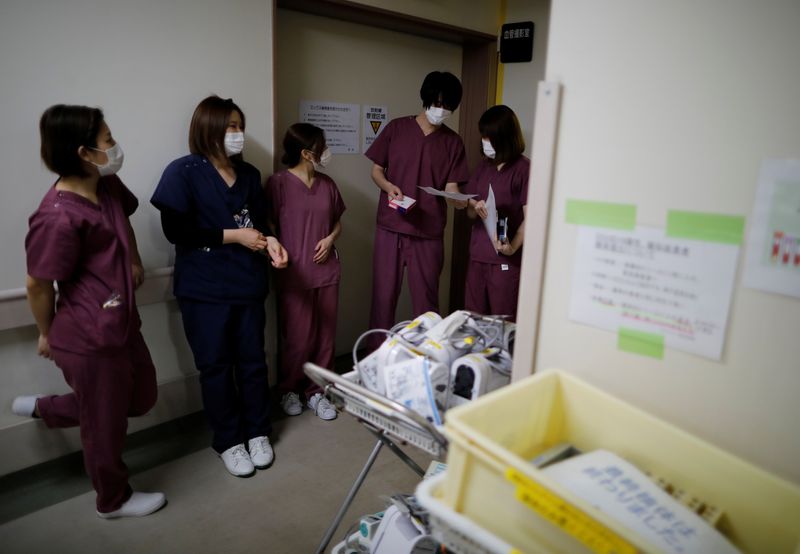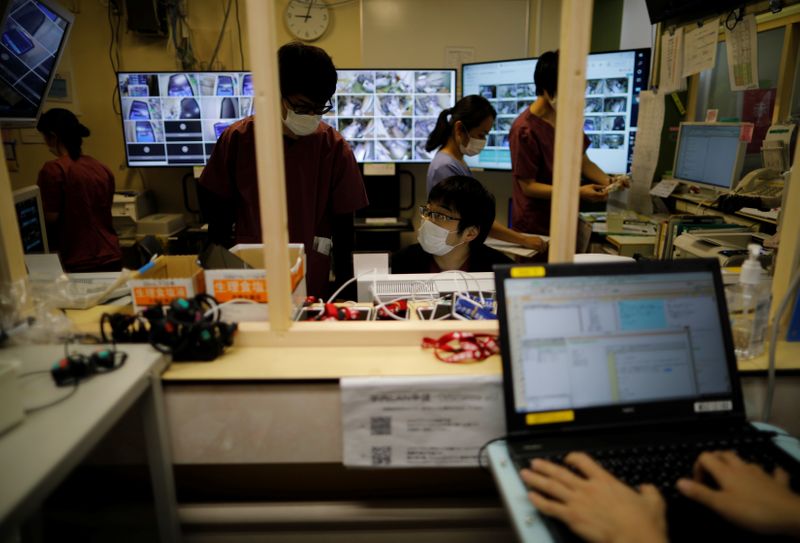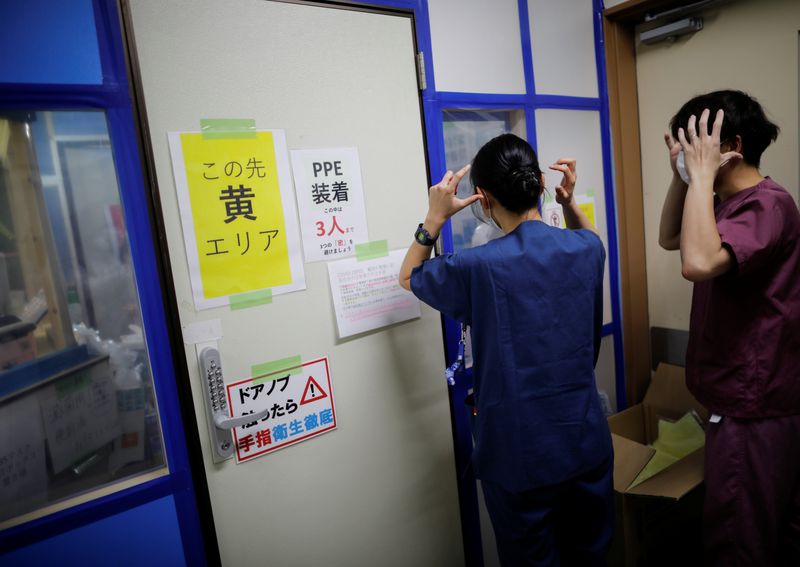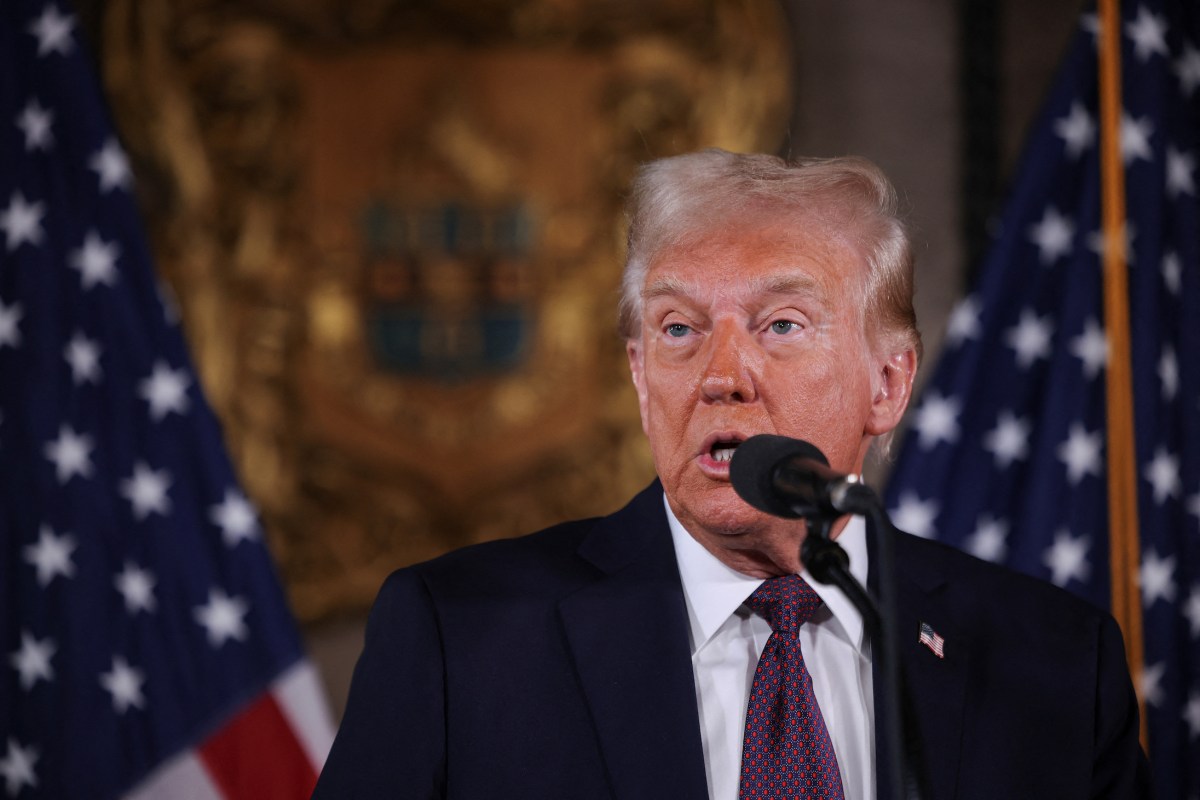KAWASAKI, Japan (Reuters) – Japanese doctors face a long, grueling campaign against the novel coronavirus even if the government extends a state of emergency for another month, a senior doctor said on Monday.
The St Marianna University Hospital in Kawasaki, south of Tokyo, was one of the first in Japan to convert parts of its Intensive Care Unit (ICU) into beds for people suffering from the novel coronavirus.
It has cared for dozens of coronavirus patients since the outbreak first reached Japan in February, and Shigeki Fujitani, a professor and director of emergency and critical care medicine at the hospital, said staff were gearing up for the long haul.
“We have been maintaining our battle for more than three months,” Fujitani said, during another busy day at the hospital.
“I think there are medical professionals that are already feeling a significant amount of stress … Our challenge from now will be to lighten their stress and continue fighting.”
Prime Minister Shinzo Abe is expected to extend a state of emergency on Monday until the end of May, under which restaurants and shops have been asked to close and people to stay at home in a bid to halt the coronavirus.
Reported cases of the coronavirus in Japan topped 15,000 and more than 500 people have died. Globally, more than 246,000 people have died from the virus.
Fujitani said an extension of the state of emergency would hopefully help curb new transmissions of the virus, but expanded testing was picking up hidden cases more often.
Another worry, Fujitani said, was maintaining an adequate supply of personal protective equipment like heavy duty N95 masks and plastic gowns.
“We are dealing with a situation in which we don’t know when N95s may become scarce. If other facilities suffer an outbreak or other prefectures start using more of them our means to acquire them will become limited,” he said.
(Reporting by Akira Tomoshige; Writing by Mari Saito)

